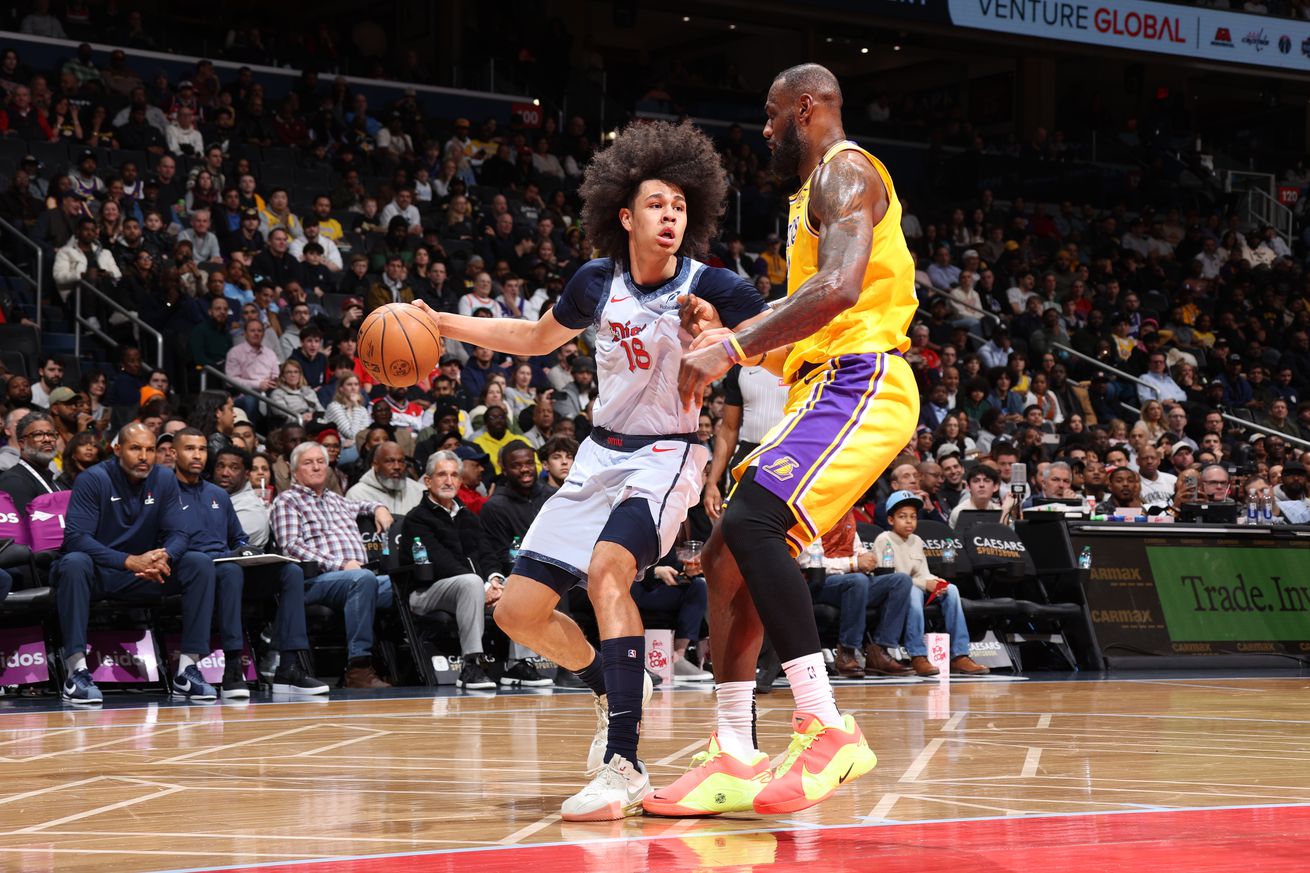
Some stats, analysis, commentary, jokes.
The Washington Wizards were humiliated by the Los Angeles Lakers for their franchise record tying 16th consecutive loss. It’s the fourth 16-game losing streak in franchise history, and their second this season.
Once again, the Wizards were utterly noncompetitive. They gave up 42 points in the first quarter and trailed by 13 at the end of the period. It was the third time this season they allowed 40 or more points in a quarter.
Then they managed just 16 points in the second quarter while giving up 36. With a bit of math, we can see that the Wizards trailed by 33 at the end of the first half.
The Lakers maintained from there, increasing their lead to as much as 42 before coasting in with a 34-point victory.
The Wizards entered the game with the third worst strength of schedule adjusted scoring margin in NBA history. After last night’s pummeling, they could pass the 2011-12 Charlotte Bobcats for second worst.
How bad was it?
- I didn’t watch this one live, but I did track the score. When I told my wife the Wizards were down 33 at the half, she said, “Someone needs to get fired.”
- Washington’s most productive starter was 21-year-old rookie Kyshawn George, who shot 2-8 from the floor and managed a PPA of just 69. In PPA (my overall production metric), 100 is average and higher is better. George’s offensive rating (points produced per possession x 100) was 81. Average is 113.5. Yes, George played poorly. Yes, he was still the team’s best starter.
- Washington’s second most productive starter was Jordan Poole,’s whose PPA was 16. His ortg was 97, which is a) terrible, and b) was still 3 points better than the team’s ortg for the game.
- Bilal Coulibaly was the third “best” starter. His PPA? 5. Kyle Kuzma and Jonas Valanciunas each had negative production scores.
- Three Wizards players notched above average PPA scores — Corey Kispert (179), Richaun Holmes (127), and Patrick Baldwin Jr. (115). Only Kispert is part of the team’s rotation. Holmes is a walking trade exception — signed to a contract solely to be aggregated in a trade. Baldwin is an end-of-bench guy who can’t get minutes on one of the worst teams in league history.
- The Wizards scored just 28 points in the paint. The Lakers scored 58.
In lieu of the usual “bright spots” segment, I have some modest proposals:
- After a rough loss, a reporter asked former Tampa Bay Buccaneers head coach John McKay what he thought of his team’s execution. McKay replied: “I’m in favor of it.”
- Take my wife’s advice and fire Brian Keefe. Replace him with an actual wizard who can cast a spell to make the Wizards win.
- Alternatively, hire Gunnery Sergean Hartman, who can at least curse (at) the opposition. And the refs.
- Invest in having the world’s greatest halftime shows every night. No seriously, do this.
- Insert G-Wiz and the timeout trampoline dunk team into the starting lineup.
- As soon as the deficit hits 10 points, call timeout and pull 15 random fans from the stands. If they hit a three, they get to play for five minutes. How much worse could they be?
- Get started on The Lottery early. No, not the Draft Lottery, and not the Shirley Jackson short story — I’m talking Keefe and the coaching staff using an unweighted lottery to set the team’s lineups and rotation for each game. Jettison logic. Ignore things like position, skill, and ability. I mean, isn’t that what the front office did when they assembled this dreck? Besides, maybe a lineup of Richaun Holmes, Anthony Gill, Tristan Vukcevic, Jonas Valanciunas, and Patrick Baldwin Jr. could actually work.
- Bait the opposition into an all-or-nothing billiards game to decide who’s declared winner of the basketball game. Secretly sign Efren Reyes.
- Transform the home court floor into a giant mirror maze. Visiting teams will struggle to find the basket, while the Wizards practice navigating it daily.
- Trade some veterans, take the beatings, hope for some lotto luck, and draft well.
Next up: the Wizards go for a new franchise record for consecutive losses against the Minnesota Timberwolves. After that, consecutive games against bad teams, one of which the Wizards could — at least in theory — win.
